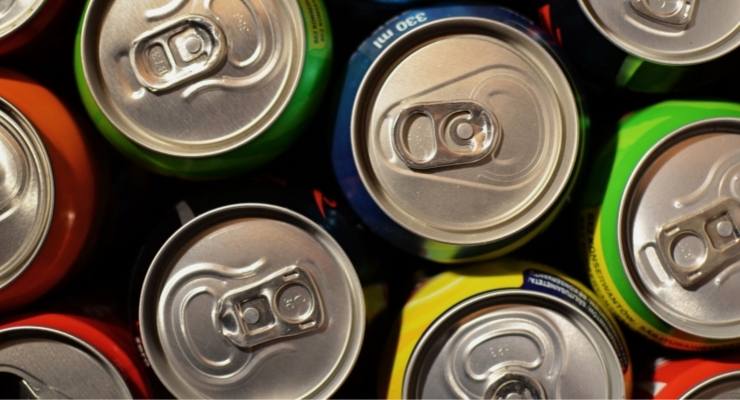09.15.22
According to a large-scale observational study, drinking two or more sugar-sweetened beverages (SSBs) per day is associated with a 5% increased risk of death from an obesity-related cancer, such as gastrointestinal, postmenopausal breast, endometrial, and kidney cancer, compared to not having any SSBs.
The results, gathered by researchers at the American Cancer Society, also found a positive association between BMI and cancer risk in the participants.
“Unfortunately, Americans exceed recommended limits on sugar consumption by the U.S. Dietary Guidelines, and sugar-sweetened beverages are known risk factors for weight gain, being overweight, and obesity,” said Dr. Marjorie McCullough, senior scientific director, epidemiology research at the American Cancer Society and lead author of the study. “Our findings further support the recommendation to limit consumption of sugar-sweetened beverages included in the ACS Guideline on Nutrition and Physical Activity for Cancer Prevention to help decrease the risk of disease.”
Researchers examined results from men and women in the Cancer Prevention Study-II (CPS-II) prospective cohort, which included information from over 900,000 participants on sugar-sweetened beverage and artificially-sweetened beverage consumption. Deaths were identified from baseline in 1982 through 2016. Cox proportional hazards regression models examined associations of beverage types with cancer mortality, with and without BMI adjustment.
At a total of 135,093 CPS-II participants died from cancer during the follow-up. Results showed that consumption by men and women of greater than two SSBs per day versus people who never drank was not associated with all-cancer mortality, but significantly associated with increased risk of obesity-related cancers combined, which became null after adjustment for BMI.
SSBs were associated with increased mortality from colorectal and kidney cancers which remained after BMI adjustment. For artificially-sweetened beverages, pancreatic cancer remained a significant risk after BMI adjustment. Because of this, the researchers concluded that associations between artificially-sweetened beverages and pancreatic cancer risk warranted further study.
“Future research should consider the role of BMI in studies of sweetened beverages and cancer risk,” McCullough said. “These results should inform public policy regarding sweetened beverage consumption to decrease the risk of cancer for men and women in the U.S.”
While most artificial sweeteners are generally thought to be safe, artificial sweetener use in the U.S. is increasing and whether these exposures are associated with cancer risk in humans remains of interest, McCullough added.
The results, gathered by researchers at the American Cancer Society, also found a positive association between BMI and cancer risk in the participants.
“Unfortunately, Americans exceed recommended limits on sugar consumption by the U.S. Dietary Guidelines, and sugar-sweetened beverages are known risk factors for weight gain, being overweight, and obesity,” said Dr. Marjorie McCullough, senior scientific director, epidemiology research at the American Cancer Society and lead author of the study. “Our findings further support the recommendation to limit consumption of sugar-sweetened beverages included in the ACS Guideline on Nutrition and Physical Activity for Cancer Prevention to help decrease the risk of disease.”
Researchers examined results from men and women in the Cancer Prevention Study-II (CPS-II) prospective cohort, which included information from over 900,000 participants on sugar-sweetened beverage and artificially-sweetened beverage consumption. Deaths were identified from baseline in 1982 through 2016. Cox proportional hazards regression models examined associations of beverage types with cancer mortality, with and without BMI adjustment.
At a total of 135,093 CPS-II participants died from cancer during the follow-up. Results showed that consumption by men and women of greater than two SSBs per day versus people who never drank was not associated with all-cancer mortality, but significantly associated with increased risk of obesity-related cancers combined, which became null after adjustment for BMI.
SSBs were associated with increased mortality from colorectal and kidney cancers which remained after BMI adjustment. For artificially-sweetened beverages, pancreatic cancer remained a significant risk after BMI adjustment. Because of this, the researchers concluded that associations between artificially-sweetened beverages and pancreatic cancer risk warranted further study.
“Future research should consider the role of BMI in studies of sweetened beverages and cancer risk,” McCullough said. “These results should inform public policy regarding sweetened beverage consumption to decrease the risk of cancer for men and women in the U.S.”
While most artificial sweeteners are generally thought to be safe, artificial sweetener use in the U.S. is increasing and whether these exposures are associated with cancer risk in humans remains of interest, McCullough added.




























